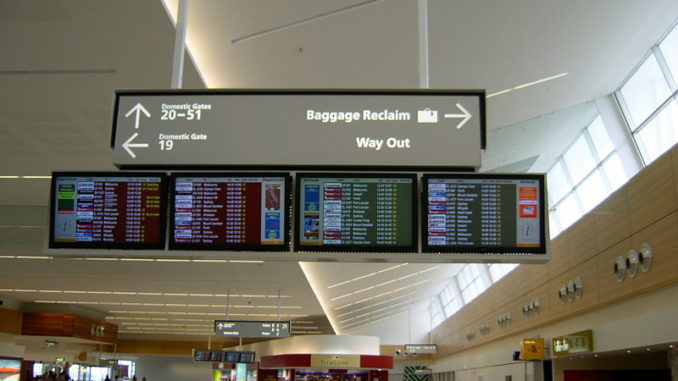
The Boeing 777 is unique among their fleet for using hollow core titanium fan blades for their engines. Following an emergency landing of United Airlines 328 over Denver this weekend, those aircraft have been grounded throughout the United States and Japan. The only other country to use that model of aircraft, South Korea, is waiting for a decision from officials but is expected to ground their flights as well. This follows a recommendation by Boeing for immediate grounding and inspection of all 777s.
Hollow core blades are believed to allow the fans to operate at higher speeds before failing, but there have been concerns about the potential for metal fatigue – a condition where small cracks may appear along the portions of a material which experience repeated stresses. Fatigue is a serious concern for fan blades, which are constantly experiencing strong forces while in operation.
The Denver failure is exceedingly uncommon, but not unique. In 2018, a fan blade broke during a United Airlines flight into Honolulu. In 2020, a Japan Airlines fan blade snapped while traveling to Tokyo. In all of these instances, the Boeing 777 was being flown, and the fan blades were hollow-core titanium.
The airplanes have been in frequent use since their purchase, and the Boeing 777 was first put into operation in 1994. It’s a model which has been tested through decades of use and which is known to be exceptionally reliable. It is highly unlikely that the aircraft will be retired, but the repeated failures of the fan blades indicate that the hollow core may need to be replaced throughout the fleet, which will be a significant cost outlay for a company which is still suffering due to the 737 Max control system problems.
The groundings will likely aid the bottom line for the European Airbus, which is the only other major producer of commercial airliners. This is a potential hit for American industry, as Boeing employs more than 140,000 people before subsidiary and feeder companies are considered. Exactly how much damage is yet to be determined, and will likely depend on how much engine failure is found, how quickly replacement must be performed, and how many contracts – typically arranged years in advance of delivery – for new aircraft are shifted between the two companies.
There is also likely to be international repercussions; while the 24 aircraft grounded in the US are a small part of the roughly 7500 commercial planes in use throughout the country, the 27 777s of Japan Airlines represent about 1/8 of its fleet of 213 planes. If Korea grounds its 777s, there will be an even greater reduction in flight availability; of the 170 aircraft in Korea Air’s fleet, 43 of them are Boeing 777s. An extended delay is likely to cause further damage to America’s reputation in those nations – already suffering after four years of aggressive and desultory “America First” policy.
